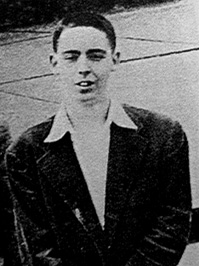BY MATTHEW HERBERT
To hear critics talk, you’d think novelists always have a purpose in mind before they start writing. Dickens wrote to expose the injustices of the Industrial Revolution; Camus probed whether we could take ourselves morally seriously after the collective death wish of World War Two; Solzhenitsyn undermined the hypocrisies of Soviet communism, that sort of thing.
Indeed Orwell said a novelist always had a message, and it was unmistakable. I’m not so sure, though.
What if the novelist’s job is to let the imagination run free and see what it discovers about the human condition on its own, without following a plan? This is basically what Milan Kundera thinks the novel is for: it is a “meditation on existence” using “experimental selves.” The novelist exists, Kundera says, to produce works, plain and simple, just as a painter exists to put paint on canvas. The works should be emotionally and intellectually honest, and they should say something new, but they should not be written to spec.
Of course, Kundera would be the first to say not many novelists achieve this vision. Most of them know what their message is ahead of time and stick to it.
I recently read my first two novels by Thomas Pynchon, Vineland and Against the Day. Truth be told, I was looking for a message before I started. I knew from a passage in Richard Rorty, my favorite political philosopher, that Vineland was a dystopian novel about the creeping threat of populist authoritarianism in America. And I had a vague idea that Against the Day, a massive, 1,100-page story about a group of boys traveling in an airship watching humanity spiral toward World War One, was going to say something about the possibility of innocence in the face of moral disaster. But when it came to actually reading the books, I was immediately overawed by Pynchon’s raw, shocking creativity. His use of language, plot, voice, perspective and other features of the novel I don’t yet have words for are enough to send the reader staggering down from the mountain, hair singed nutty-professor style, asking themselves just how many tablets of sacred genius there might be back up there on the summit.

I won’t undertake a review of either book here; I’m not yet up to it. But having had my first encounter with Pynchon, especially in Against the Day, which matches Tolstoy at his best, I feel unable to keep my mouth from moving; the nerves are unloosed. One’s first shocked impressions of Pynchon produce gibberish, then pass to inchoate phrases and on to something like an idea of what is happening. That’s about where I am.
So why do I mention Pynchon in the context of Kundera’s idea of the novel as a free-floating meditation? Because there certainly seems to be a message in Pynchon, but I think it is honestly gained, even by Kundera’s demanding standards. Despite stretching out a massive canvas wide enough to catch the human experience in full, Pynchon pretty obviously homes in on a single principle: that organized money is the enemy of moral seriousness. The sprawling canvases of the two novels I’ve read are crowded with characters who divide along one line, between those who relate to fellow humans and those who use them. It is a wonderful confection of ideas undreamt of in the philsophies of my youth: the morals of Kant turned out in the gonzo fantasies of magical realism. (In Against the Day, dogs read, the sun is occasionally pierced by time travelers, sexual congress is kept up at an improbable rate and variety, and so forth.)
I may or may not have the opportunity to review Vineland or Against the Day properly. Today’s notes can be compared to the first reflections of someone who believes he’s been abducted by aliens. I’m not ready to write a book about it, but I feel I should start making sense of the experience.
I’ll close with the words of one of Pynhon’s minor characters in Against the Day, an anarchist preacher who, sizing the world up in the following terms, sets the stage for the novel’s main characters, three Telluride cowboys, to up and seek adventures, Quixote style:
But when you reach a point in your life where you understand who is fucking who—beg pardon, Lord—who’s taking it and who’s not, that’s when you’re obliged to choose how much you’ll go along with. If you are not devoting every breath of every day waking and sleeping to destroying those who slaughter the innocent as easy as signing a check, then how innocent are you willing to call yourself?